| Srl | Item |
| 1 |
ID:
118931
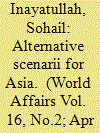

|
|
|
| 2 |
ID:
100871
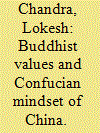

|
|
|
| 3 |
ID:
152033
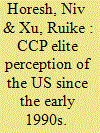

|
|
|
|
|
| Summary/Abstract |
This article juxtaposes two of the most influential yet under-studied America watchers within the top echelon of the Chinese Communist Party (CCP), Wang Huning and Zheng Bijian. To be sure, the two have indelibly shaped CCP attitudes, yet surprisingly enough, although Zheng has been written about extensively in the English language, Wang has hitherto largely remained outside academics’ purview. This article also aims, in passing, to explore linkages between Wang and Zheng ideas and those of other well- known America watchers like Liu Mingfu and Yan Xuetong. The comparison offers clues as to the extent to which the current advisory shaping CCP thinking on the US differs from the previous generation, and as to whether CCP thinking is un-American or anti-American in essence. The conclusions ties the study together by arguing, based on Wang and Zheng's views, that New Confucianism may shape Chinese society in the future
|
|
|
|
|
|
|
|
|
|
|
|
|
|
|
|
| 4 |
ID:
149310
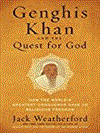

|
|
|
|
|
| Publication |
New York, Viking, 2016.
|
| Description |
xxiii, 407p.:mapshbk
|
| Standard Number |
9780735221154
|
|
|
|
|
|
|
|
|
|
|
|
Copies: C:1/I:0,R:0,Q:0
Circulation
| Accession# | Call# | Current Location | Status | Policy | Location |
| 058913 | 323.44/WEA 058913 | Main | On Shelf | General | |
|
|
|
|
| 5 |
ID:
179342
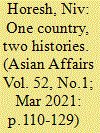

|
|
|
|
|
| Summary/Abstract |
The 19th Chinese Communist Party (CCP) Congress, held in October 2017, enshrined not just Xi Jinping's grip on power. It also re-coated its ideology with a medley of Socialist and traditionalist buzz words that had been marginalized in the 1980s. During the height of the reform era, these increasingly made way for ideas borrowed from market economies. Predictably enough, the ideological ferment surrounding the 19th Party Congress has since also played out in the realm of education. This article examines in detail the most current history textbooks used in PRC classrooms to construe China's pre-Imperial and Imperial past. To that end, included in my exploration will not just be changing PRC attitudes to the Chinese past, but also PRC instruction of world history from antiquity to the early modern era. In passing, I will also compare the school material with the latest authoritative Western scholarly studies of the same topics by way of eliciting how PRC official historical narratives of events preceding the 20th century diverge from Western ones.
|
|
|
|
|
|
|
|
|
|
|
|
|
|
|
|
| 6 |
ID:
168764
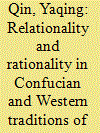

|
|
|
|
|
| Summary/Abstract |
This paper provides a theoretical sketch of relationality within the field of International Relations (IR). It argues, contrary to what many IR scholars hold, that representation is practice: academic representation reflects the background of a community of practice and highlights what is embodied therein. Therefore, different cultural communities have different practices and draw from different background knowledge. Rationality, which serves as the dominant foundation for background knowledge within many Western communities of practice, permeates mainstream IR theory. Relationality performs a similar role in traditionally Confucian communities of practice, where relations enjoy a distinct ontological status over individual rationality. A relational theory assumes (1) that self-existence coincides with other-existence and coexistence, and (2) that self-interest coincides with other-interest. Based on these assumptions, it argues that relations select, meaning that in a social situation actors base their action on relations in the first place and that rationality is and can only be defined in terms of relations. The article uses the Association of Southeast Asian Nations (ASEAN) as an example to elaborate its theoretical point.
|
|
|
|
|
|
|
|
|
|
|
|
|
|
|
|
| 7 |
ID:
137527
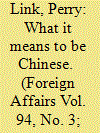

|
|
|
|
|
| Summary/Abstract |
What does it mean to be Chinese? A strong tradition in premodern China held that it meant thinking, behaving, and living in a society in accord with heaven-sanctioned principles exemplifying the best way to be human. Other peoples could learn this Chineseness, and they could also become civilized, but they could never rival China in either defining propriety or drawing people into accordance with it.
|
|
|
|
|
|
|
|
|
|
|
|
|
|
|
|